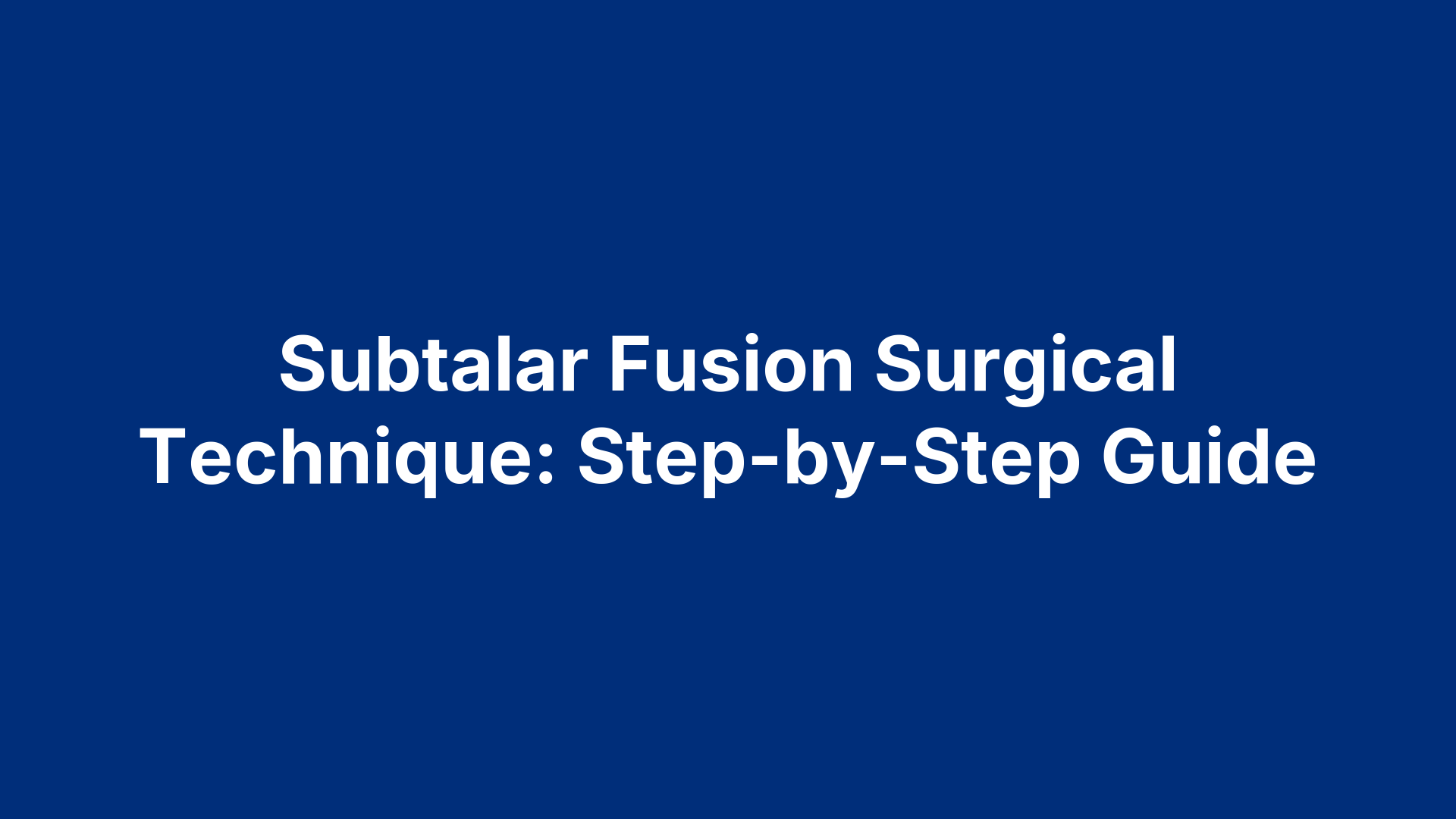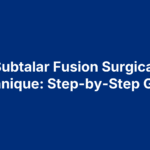Your knees hurt after every run. Your feet feel off. Maybe you keep getting the same injury over and over. You know something about your running form needs fixing but you have no idea where to start looking for help. Running stores offer free checks but you wonder if they just want to sell you shoes. Clinics sound more thorough but the cost feels like a mystery. You need real answers about who can actually analyze your gait and what you should expect to pay.
This guide breaks down seven places where you can get a running gait analysis near you. You’ll learn what happens during each type of assessment, who each option suits best, and what the pricing looks like. Whether you need a quick shoe fitting at a local running store or a comprehensive evaluation from a sports medicine clinic, you’ll know exactly where to go and what to bring with you.
1. Achilles Foot and Ankle Center
Achilles Foot and Ankle Center offers medical-grade gait analysis through their team of podiatric specialists across multiple Central Virginia locations. Unlike a running store’s quick video check, you get a thorough biomechanical assessment from doctors who treat foot and ankle injuries every day. They combine clinical evaluation with advanced diagnostic tools to identify why your running form causes pain or recurring problems.
What a running gait analysis looks like here
Your podiatrist watches you walk and run in the exam room to observe your natural movement patterns and weight distribution. They examine your feet for structural issues like flat arches, bunions, or misalignment that affect your stride. The assessment includes checking your ankle range of motion and testing for conditions like plantar fasciitis or Achilles tendonitis that alter how you run.
Types of runners and walkers this suits best
This option works best if you have chronic pain, recurring injuries, or medical conditions like diabetes that complicate your running. Runners dealing with heel pain, nerve issues, or toe deformities get more value here than at a shoe store. You benefit most when you need a diagnosis and treatment plan beyond just finding the right footwear.
Medical gait analysis digs deeper than shoe fitting because podiatrists identify and treat the underlying conditions causing your running problems.
Technology and tests the podiatrist may use
Expect digital imaging and potentially fluoroscopy-guided assessments to see how your bones and joints move during weight bearing. Your podiatrist may use ultrasound to check tendons and soft tissue. Some locations offer advanced wound care technology and custom orthotic fabrication on site for immediate solutions.
Typical visit flow from check in to recommendations
You check in and complete paperwork about your running history and current symptoms. After the physical exam and gait observation, your podiatrist explains findings and recommends treatments ranging from custom orthotics and physical therapy to injections or surgical options. Most visits last 30 to 45 minutes from arrival to checkout.
Pricing, insurance, and how billing usually works
The practice accepts all major insurance plans including Medicare and Medicaid. Your copay or deductible applies like any medical visit. Without insurance, expect to pay $150 to $300 for an initial evaluation. The billing codes used are standard podiatry visit codes, not separate gait analysis fees.
How to book at a nearby Central Virginia location
Call any of their thirteen Central Virginia offices or use their online patient portal to schedule. They offer same-day appointments for urgent issues. Locations include Mechanicsville, West End, Midlothian, and ten other cities throughout the Richmond metro area.
2. Local running shoe stores
Most specialty running stores offer free gait analysis as part of their fitting process. Staff members watch you walk or run on a treadmill, film your stride from behind, and recommend shoes based on your pronation pattern. These quick assessments focus on matching footwear to your biomechanics rather than diagnosing injuries. When you search "running gait analysis near me," local running stores usually appear at the top because they make this service accessible to every customer.
What in store gait analysis usually includes
You walk or run barefoot on a treadmill while an employee records video of your feet and ankles from behind. The staff member reviews the footage with you to identify whether you overpronate, underpronate, or have neutral foot strike. They measure your foot size using a 3D scanning device at stores like Fleet Feet or Road Runner Sports. The entire process takes 10 to 15 minutes and ends with shoe recommendations from their inventory.
Pros and cons of shoe store gait checks
Store gait analysis costs nothing and requires no appointment. You leave with shoes the same day instead of waiting weeks for custom orthotics. However, staff training varies widely between stores and employees. They cannot diagnose medical conditions or prescribe treatment beyond footwear. The analysis stays surface level because stores prioritize product selection over identifying structural problems that need medical attention.
Who local running stores are best for
Healthy runners buying their first pair of running shoes benefit most from this option. You get value if you simply need guidance on neutral versus stability shoes without pain or injury concerns. Experienced runners checking whether their current shoe category still fits their form also find this useful.
Typical pricing and when it is free
Specialty running stores provide gait analysis free of charge with no purchase required. Some stores like Road Runner Sports include it as part of their VIP membership programs. You pay only for the shoes you buy, typically $120 to $180 per pair.
How to find reputable running stores near you
Search for stores affiliated with Fleet Feet or Road Runner Sports that train staff in biomechanics. Read reviews mentioning knowledgeable employees rather than pushy sales tactics. Ask local running clubs which stores they trust for fittings.
Running stores excel at matching shoes to your gait but cannot replace medical evaluation when you have chronic pain or recurring injuries.
3. Sports medicine and physical therapy clinics
Sports medicine doctors and physical therapists provide comprehensive biomechanical assessments that combine movement analysis with strength and flexibility testing. These clinics treat the whole picture instead of focusing only on your feet or shoes. You receive a treatment plan addressing muscle imbalances, poor movement patterns, and structural issues causing your running problems. When you search "running gait analysis near me" for injury recovery or performance improvement, these clinics deliver the medical expertise and rehabilitation protocols you need.
How clinicians analyze your running form and strength
Physical therapists record video of you running on a treadmill while analyzing your hip alignment, knee tracking, and arm swing patterns. They test muscle strength in your glutes, quads, hamstrings, and calves to identify weaknesses affecting your stride. Clinicians measure your ankle dorsiflexion range, hip rotation, and hamstring flexibility since restricted mobility alters running mechanics. Most assessments include single leg balance tests and functional movement screens to spot asymmetries between your left and right sides.
When to choose a sports medicine or rehab clinic
Choose this option when you have recurring injuries like IT band syndrome, shin splints, or runner’s knee that shoes alone cannot fix. Clinics work best for runners returning from surgery or dealing with chronic pain requiring supervised rehabilitation. You benefit most when you need corrective exercises and hands-on treatment rather than just footwear recommendations.
What to expect during an evaluation session
Your first visit includes a detailed injury history interview covering your training volume, previous problems, and current symptoms. The clinician performs hands-on tests checking joint mobility, muscle tightness, and tender points. After watching you run and reviewing video footage, they explain findings and demonstrate corrective exercises you practice together. Sessions typically last 45 to 60 minutes and end with a home exercise program.
Price ranges, insurance coverage, and referrals
Initial evaluations cost $150 to $250 without insurance. Most insurance plans cover physical therapy with referrals from your primary care doctor. Sports medicine physicians may require higher copays than standard PT visits. Follow-up sessions run $75 to $125 each.
How to search for qualified clinics close to you
Look for physical therapists with sports specialization certifications or doctors of physical therapy trained in running biomechanics. Check if clinics mention gait analysis or running injury treatment on their websites. Ask fellow runners in local clubs which clinics helped them recover from similar injuries.
Sports medicine clinics bridge the gap between shoe store fittings and hospital performance labs by combining medical expertise with practical training modifications.
4. Hospital based performance centers
Hospital performance centers combine medical expertise with research-grade equipment to deliver the most comprehensive running analysis available outside of university laboratories. These programs operate within major health systems like Memorial Hermann or UPMC and employ biomechanists, sports medicine physicians, and exercise physiologists trained in advanced movement science. You receive detailed reports backed by precise measurements rather than quick visual assessments. When searching "running gait analysis near me" reveals hospital programs nearby, you access technology and medical oversight that most standalone clinics cannot match.
What makes hospital performance labs different
Hospital labs use three-dimensional motion capture systems with multiple cameras tracking reflective markers placed on your body. This technology measures joint angles, ground reaction forces, and muscle activation patterns with scientific precision. Your analysis happens in a controlled environment with calibrated equipment rather than relying on a single treadmill video. Lab staff follow standardized protocols that ensure consistent, repeatable results across different testing sessions.
Tests and data you get from these assessments
Expect force plate analysis measuring how your feet strike the ground and push off during each stride. Labs record your running cadence, vertical oscillation, and ground contact time using sophisticated sensors. Many programs include VO2 max testing and lactate threshold measurements to assess your aerobic capacity alongside biomechanics. You leave with a detailed report containing graphs, numerical data, and specific recommendations for form corrections or training adjustments.
Who benefits most from this level of analysis
Serious competitive runners training for marathons or ultras gain the most from this investment. Athletes recovering from major surgeries or managing chronic conditions benefit from the medical oversight these programs provide. You should consider hospital labs when you need documentation for insurance claims or baseline measurements to track improvement over time.
Hospital performance labs deliver research-quality data that helps competitive athletes and medical patients make evidence-based training decisions.
Expected pricing and whether insurance helps
Full assessments typically cost $300 to $500 per session. Insurance rarely covers performance testing unless your doctor orders it for injury treatment or medical necessity. Some programs offer partial coverage when combined with physical therapy services. Budget for out-of-pocket payment in most cases.
How to compare hospital programs in your area
Check whether the program employs certified biomechanists or sports medicine physicians rather than general fitness staff. Ask what specific equipment they use and whether you receive a written report with raw data. Compare turnaround times since some programs provide same-day results while others take weeks to deliver findings.
5. Dedicated running gait labs
Specialized gait laboratories focus exclusively on biomechanical analysis using technology that surpasses what most physical therapy clinics or hospital performance centers offer. These independent labs employ biomechanists, kinesiologists, and movement specialists who dedicate their entire practice to analyzing running form. You find them in major running cities or near universities with strong exercise science programs. When you search "running gait analysis near me" and discover a dedicated lab, you access the highest level of technical analysis available to recreational and competitive runners.
Technology and motion capture you can expect
Labs install multi-camera motion capture systems similar to what movie studios use for CGI animation. Technicians place reflective markers on your joints and record your movement from every angle simultaneously. Force plates embedded in the floor measure ground reaction forces with millisecond precision as each foot strikes and pushes off. Many labs add electromyography sensors that track which muscles fire during different phases of your stride. Some facilities incorporate pressure-sensitive treadmills that create heat maps showing exactly how your feet contact the running surface.
How a full gait lab session is structured
Your session begins with a consultation reviewing your training history, injury background, and performance goals. Staff members attach markers to specific anatomical landmarks on your body while you change into form-fitting clothing. You complete a series of running trials at different speeds while cameras record your movement. Analysis takes 15 to 30 minutes as technicians process the data and generate reports. Your final consultation includes reviewing video footage, examining numerical data, and discussing specific form modifications or training recommendations.
Gait labs provide frame-by-frame video analysis and precise joint angle measurements that reveal subtle inefficiencies invisible to the naked eye.
Ideal runners for this type of deep dive
This option suits competitive runners chasing Boston qualifiers or age group podium spots who need every advantage. Athletes working with running coaches benefit from objective data that guides training modifications. You gain value when you have plateaued in performance despite consistent training or when you want to prevent injuries before they occur rather than treating existing problems.
Typical cost range and how to budget for it
Full gait lab assessments cost $400 to $600 for initial sessions including detailed reports and video analysis. Follow-up sessions checking your progress after implementing changes run $200 to $300. Insurance never covers these services since they focus on performance optimization rather than medical treatment. Budget this expense like investing in a training camp or hiring a specialized coach.
How to locate labs and verify their expertise
Search for labs affiliated with university research programs or those run by certified biomechanists with advanced degrees. Check whether the facility publishes their equipment specifications on their website. Ask if they provide raw data files you can share with your coach or physical therapist. Read reviews focusing on whether clients received actionable recommendations rather than just impressive technology demonstrations.
6. Virtual and at home gait analysis
Technology now brings basic gait assessment directly to your home through smartphone apps, wearable sensors, and online coaching services. These options provide convenient starting points when you want preliminary feedback before investing in professional analysis. Virtual assessments work well for runners living in areas where "running gait analysis near me" returns limited results or those wanting quick insights between clinic visits. You sacrifice precision and medical expertise but gain immediate access at lower costs.
How virtual video based gait analysis works
Online services connect you with remote coaches or biomechanists who review videos you upload through their platforms. You record yourself running from multiple angles following their specific instructions for camera placement and distance. Coaches analyze your footage and send back detailed reports identifying form issues, suggesting drills, and recommending exercises. Sessions happen entirely through email or video calls, with turnaround times ranging from 24 hours to one week depending on the service.
Simple phone videos you can record yourself
Set your phone on a stable surface or ask a friend to film you running from behind, from the side, and from the front. Capture at least 30 seconds of continuous running at your normal training pace in well-lit conditions. Slow motion mode helps you spot details when reviewing footage yourself. Free apps like Coach’s Eye let you draw lines and angles on your videos to check knee alignment and hip drop.
Using wearables and apps for basic insights
Running watches from Garmin and Apple track metrics like ground contact time, vertical oscillation, and cadence that reflect your running efficiency. Stryd foot pods measure power output and running dynamics with each stride. Apps like Runzi analyze your movement patterns using your phone’s built-in sensors during treadmill runs. These tools provide numerical data but lack the visual analysis professionals perform.
Price ranges from free tools to paid services
Recording and reviewing your own videos costs nothing beyond your existing phone. Basic running watch metrics come included with devices you already own. Virtual coaching services analyzing your videos charge $50 to $150 per assessment. Subscription-based apps with AI gait analysis cost $10 to $30 monthly.
When home options are not enough and you need a clinic
Home analysis cannot identify structural problems like leg length discrepancies or joint instability requiring medical diagnosis. You need professional evaluation when pain persists despite form corrections suggested by virtual coaches. Runners with complex injury histories or chronic conditions benefit from in-person assessments where clinicians perform hands-on tests and prescribe targeted treatments.
Virtual gait analysis offers convenience and affordability but cannot replace medical expertise when you need diagnosis and treatment of underlying conditions.
Next steps
Start by identifying which type of analysis matches your current needs and budget. If you have chronic pain or medical conditions affecting your running, book an appointment with a podiatrist who can diagnose and treat underlying problems rather than just recommending shoes. Healthy runners seeking better shoe fit can visit local running stores for free assessments. Those wanting detailed performance data should research dedicated labs or hospital programs in their area.
Your search for "running gait analysis near me" ends when you match the right assessment level to your specific situation. Pain that persists beyond a few weeks requires medical attention rather than just form adjustments or new footwear. Running with poor mechanics compounds problems over time, turning minor issues into chronic injuries that sideline you for months instead of days.
Schedule an appointment at Achilles Foot and Ankle Center to receive a comprehensive gait assessment at one of their thirteen Central Virginia locations. Their podiatric specialists combine medical expertise with advanced diagnostic tools to identify and treat the root causes of your running problems, offering same-day appointments when you need urgent care.






